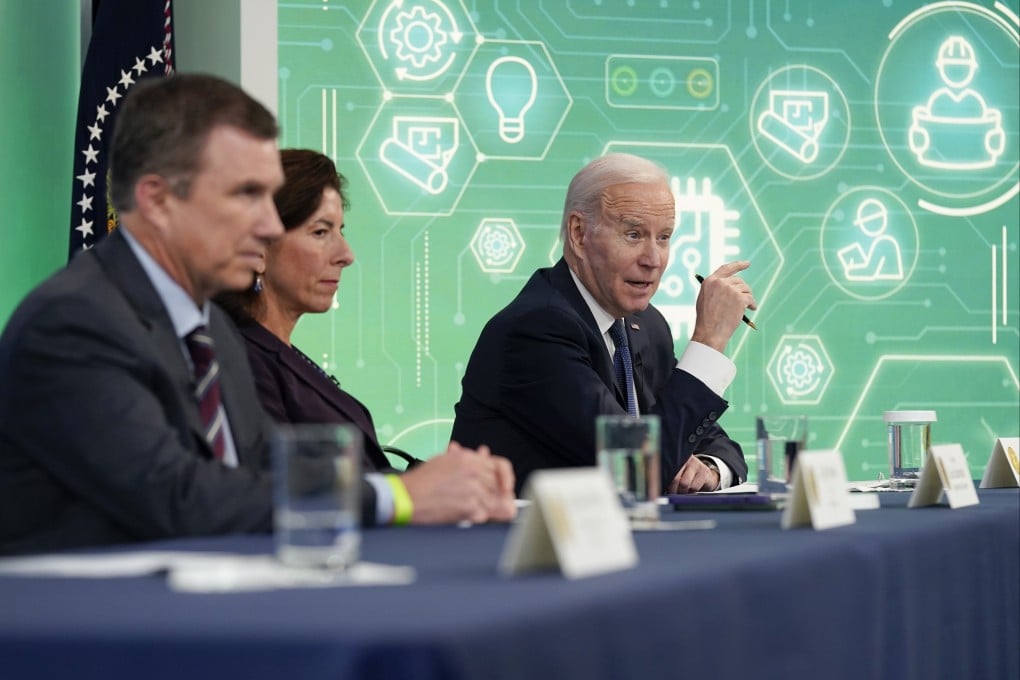Joe Biden presses US Congress to finalise bill to fund tech, compete with China
- ‘This bipartisan innovation bill will allow us to stamp more products “Made in America”. It’s going to bolster our national security and our economic security’
- A timeline for when a compromise version of the legislation might be completed is unclear

US President Joe Biden urged Congress on Wednesday to hurry up and pass a final, compromise version of sweeping legislation meant to strengthen US competitiveness against China.
“The bottom line is this bipartisan innovation bill will allow us to stamp more products ‘Made in America’. It’s going to bolster our national security and our economic security,” said Biden.
The comments come as Washington remains consumed by Russia’s invasion of Ukraine, which will soon enter a third week of intense fighting, but the Biden administration has insisted throughout the war that it will not be distracted from other priorities in the world, including China.
The legislation, which the White House is now calling the Bipartisan Innovation Act, would include potentially US$52 billion in funding for the US semiconductor industry – a crucial technology used in everything from cars to computers, which Washington and Beijing are both racing to master.
“There’s perhaps no production more important than reclaiming America’s leadership and owning our future than semiconductors,” said Biden, who spoke at the White House alongside US Commerce Secretary Gina Raimondo and a group of business executives and state governors.
